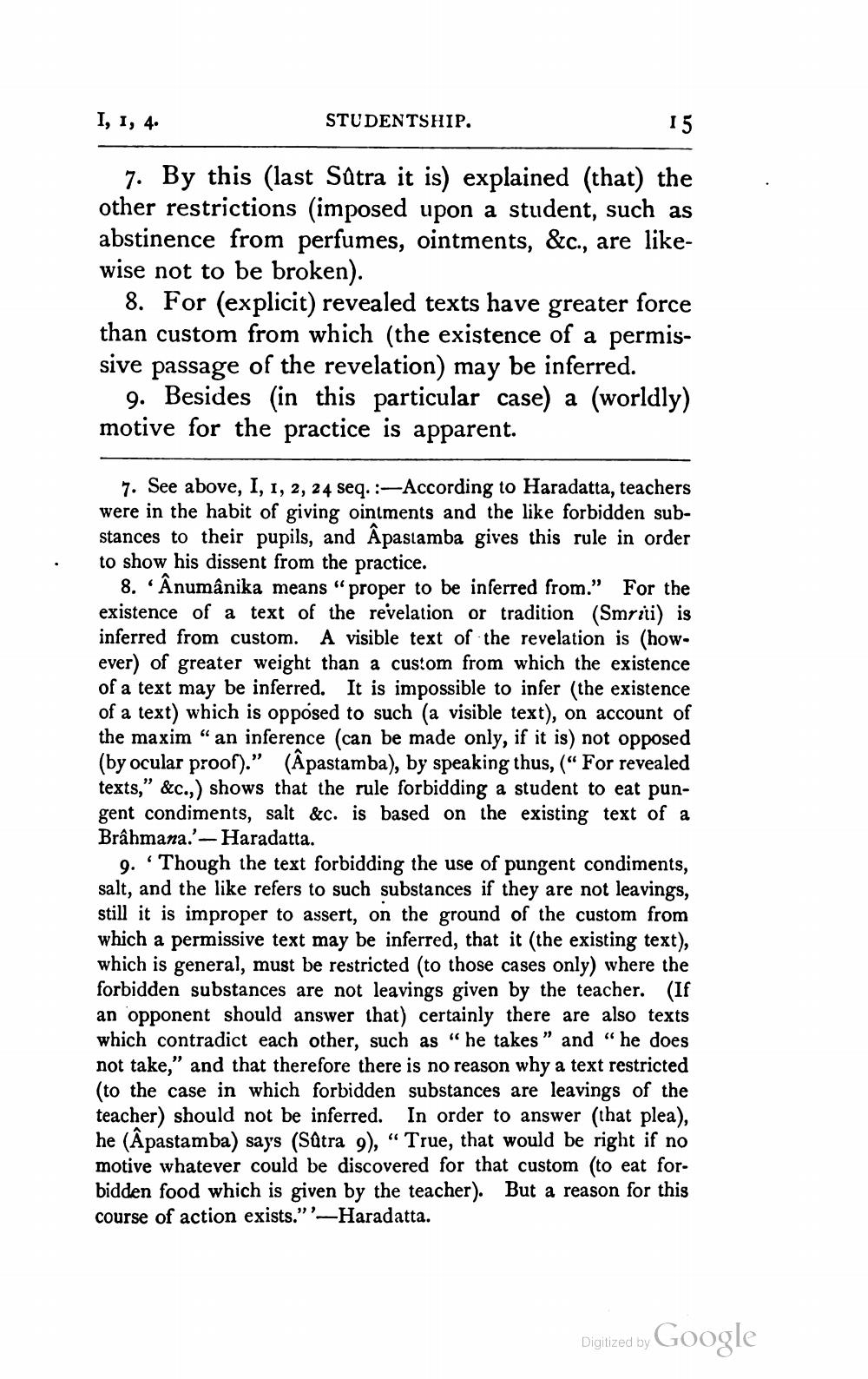________________
I, 1, 4.
STUDENTSHIP.
15
7. By this (last Satra it is) explained (that) the other restrictions (imposed upon a student, such as abstinence from perfumes, ointments, &c., are likewise not to be broken).
8. For (explicit) revealed texts have greater force than custom from which (the existence of a permissive passage of the revelation) may be inferred.
9. Besides in this particular case) a (worldly) motive for the practice is apparent.
O
7. See above, I, 1, 2, 24 seq. :-According to Haradatta, teachers were in the habit of giving ointments and the like forbidden substances to their pupils, and Apastamba gives this rule in order to show his dissent from the practice.
8. Änumânika means “proper to be inferred from." For the existence of a text of the revelation or tradition (Smriti) is inferred from custom. A visible text of the revelation is (however) of greater weight than a custom from which the existence of a text may be inferred. It is impossible to infer (the existence of a text) which is opposed to such (a visible text), on account of the maxim "an inferen ce (can be made only, if it is) not opposed (by ocular proof).” (Apastamba), by speaking thus, (“For revealed texts," &c.,) shows that the rule forbidding a student to eat pungent condiments, salt &c. is based on the existing text of a Brâhmana.' - Haradatta.
9. Though the text forbidding the use of pungent condiments, salt, and the like refers to such substances if they are not leavings, still it is improper to assert, on the ground of the custom from which a permissive text may be inferred, that it (the existing text), which is general, must be restricted (to those cases only) where the forbidden substances are not leavings given by the teacher. (If an opponent should answer that) certainly there are also texts which contradict each other, such as " he takes" and " he does not take," and that therefore there is no reason why a text restricted (to the case in which forbidden substances are leavings of the teacher) should not be inferred. In order to answer (that plea), he (Âpastamba) says (Sûtra 9), “True, that would be right if no motive whatever could be discovered for that custom (to eat forbidden food which is given by the teacher). But a reason for this course of action exists."-Haradatta.
Digitized by Google




